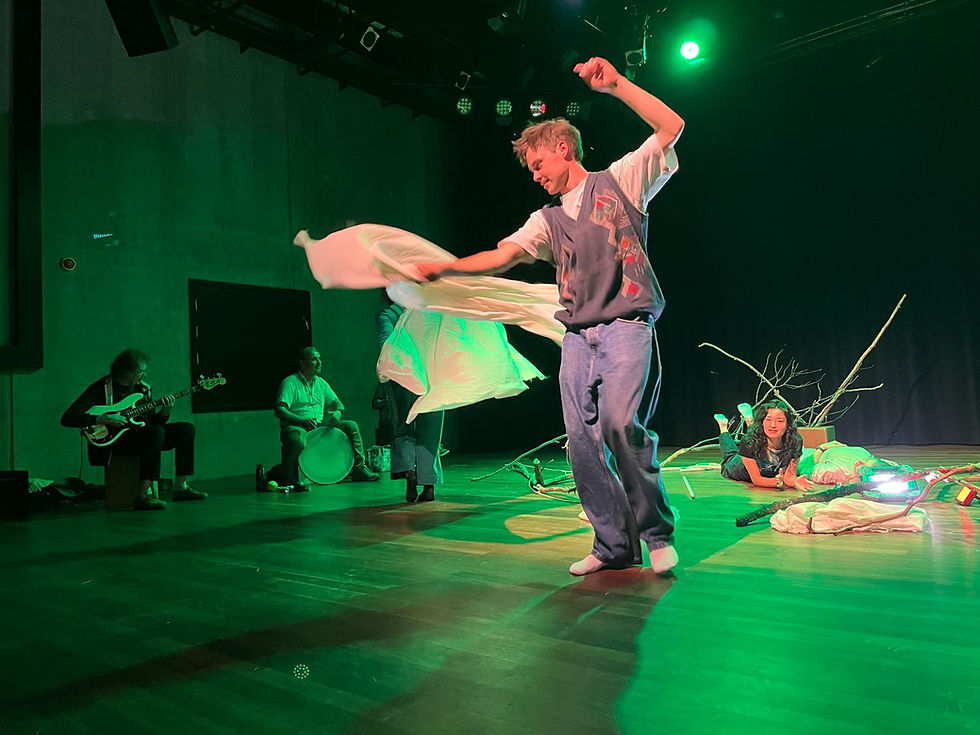The Art of Unprepared Success: A Qualitative Study on the Experienced Effect of an Improvisation Performance on the Resilience of Adults
- susirosenfeld
- 3 apr 2025
- 2 minuten om te lezen
Bijgewerkt op: 4 apr 2025
Bachelor’s Thesis in Nursing, Faculty of Healthcare and Welfare, Utrecht University of Applied Sciences, by Kim Muller (2024)

SUMMARY
Background
Improvisation performances are recognized in scientific literature as beneficial for the resilience of adults. However, there is little qualitative research on improvisation performances in the context of neighborhood cultural centers. Het Wilde Westen (HWW) is a neighborhood cultural center in Utrecht-West that organizes Common Stage (CS), a collective improvisation performance for local residents from diverse backgrounds.
The goal of this study is to map the perceived effects of an improvisation performance on the resilience of adults.
Research question: What are the perceived effects of participating in a collective improvisation performance at HWW on the resilience of adults?
Method
A qualitative study was conducted using eight semi-structured interviews, aiming for as much representation as possible of the diverse and multicultural target group that participates in CS. The interview questions were based on a topic list. The interviews were then transcribed and coded.
Results
The results show that improvisation performances help connect people in the neighborhood and have a positive effect on physical, social, and mental well-being. Additionally, they highlight the value of diversity in broadening perspectives and bringing like-minded individuals together.
Discussion and Conclusion
Taking the study’s limitations into account, this research concludes that an improvisation performance positively contributes to the resilience of adults. Although not all respondents identified with the concept of resilience or were consciously engaged with it, the majority reported benefits on a physical, social, and mental level.
Recommendations
CS is advised to assign someone familiar with the concept to explain it to newcomers to prevent potential friction.
HWW is recommended to extend shared meals after activities to other events or to combine Common Stage’s shared dining moment with other activities. This would facilitate interactions between participants from different activities, strengthening the sense of community and neighborhood involvement.
Click here for the thesis (written in Dutch).



Opmerkingen